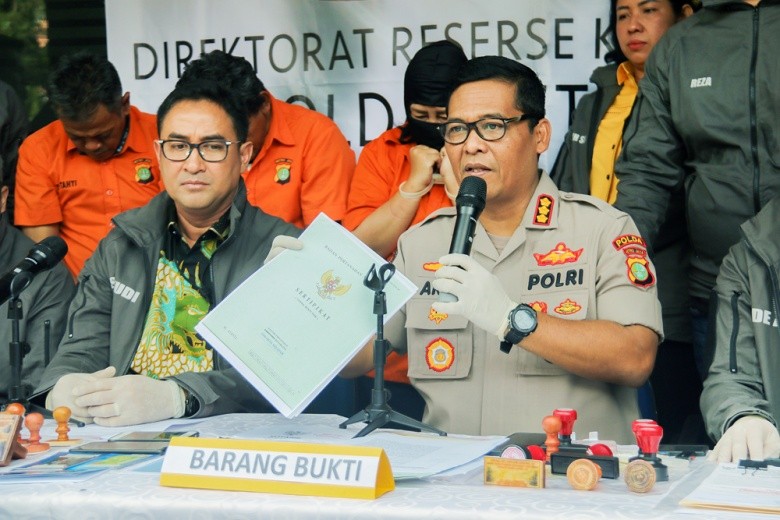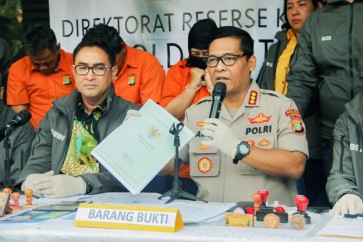Popular Reads
Top Results
Can't find what you're looking for?
View all search resultsPopular Reads
Top Results
Can't find what you're looking for?
View all search resultsWhy does investment fraud continue to occur?
Despite the government’s best efforts, in particular through the Financial Services Authority’s investment alert task force, in preventing and uncovering investment fraud, there appears to be no shortage of victims in Indonesia to this decades-old crime.
Change text size
Gift Premium Articles
to Anyone
T
he year 2020 has just begun and yet several fraud cases have already made headlines. This includes the seemingly endless wave of investment fraud of various forms and size.
The massive MeMiles investment scam case, for example, was recently uncovered by the police, after its alleged mastermind amassed around Rp 750 billion (US$54.6 million) from hundreds of thousands of victims. Like in other investment scam cases, the victims were lured by unrealistically high returns for their investment.
Such cases are not new to Indonesian people. In fact, every year, thousands of Indonesians fall victim to such schemes. Last December, the Financial Service Authority (OJK) uncovered 182 fraudulent investment schemes. Despite the government’s best efforts, in particular through the Financial Services Authority’s investment alert task force, in preventing and uncovering investment fraud, there appears to be no shortage of victims in Indonesia to this decades-old crime.
Historically speaking, investment fraud is among the oldest fraud schemes in the world. Charles Ponzi was known to be the man who perfected the art of “robbing Paul to pay Peter” by creating and running the Ponzi scheme in the 1920s. To attract his victims, he promised high rates of return with little risk. In reality, he simply used money from new investors to generate returns for earlier investors.
Decades later, Ponzi’s legacy was reinvented by a former NASDAQ chairman, Bernard Madoff, who used his wealth management firm to accumulate around $64.8 billion from thousands of investors. The scheme was uncovered by the authorities in 2008 and a year later Madoff was sentenced to 150 years in prison with restitution of $170 billion.
One thing worthy of a note from the countless number of victims of investment fraud is the fact that people today are still just as vulnerable to this type of fraud as those in the era of Ponzi. Shouldn’t we have learned something by now? Apparently not.
Many fraud victims are actually intelligent people who should have easily recognized the early signs of fraud. In the Madoff case, many financial and investment savvy people fell victim.


















